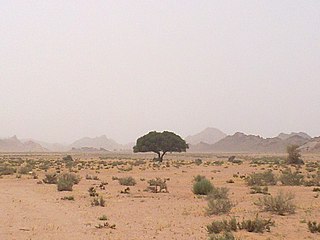
Haʾil Region is a region of Saudi Arabia, located in the north of the country. It has an area of 103,887 km² and a population of 527,033 (2004) census). Its capital is Haʾil. It is subdivided into four governorates: :
- Ha'il 412,758
- Al-Ghazalah 102,588
- Ash-Shinan 41,641
- Baqa 40,157

Antarah ibn Shaddad, also known as ʿAntar, was a pre-Islamic Arab knight and poet, famous for both his poetry and his adventurous life. His chief poem forms part of the Mu'allaqāt, the collection of seven "hanging odes" legendarily said to have been suspended in the Kaaba. The account of his life forms the basis of a long and extravagant romance.

The Lakhmids referred to in Arabic as Al-Manādhirah or Banu Lakhm were an Arab kingdom of southern Iraq with al-Hirah as their capital, from about 300 to 602 AD. They were generally but intermittently the allies and clients of the Sassanian Empire, and participant in the Roman–Persian Wars.
Habib, sometimes written as Habeeb, is an Arabic masculine given name, occasional surname, and honorific, with the meaning "beloved".
Hisham is an Arabic male given name which means "generous". It is not to be confused with the similar looking, but unrelated, Hashim.
Jabir is an Arabic surname or male given name, which means "comforter". Alternative spellings include Djābir, Jaber, Jābir, Gabir, and Geber. The name may refer to:
Tayy, also known as Ṭayyi or Taiesʾ, is a large and ancient Arab tribe, whose descendants today are the tribe of Shammar, who continue to live throughout the Middle Eastern states of the Arab world and the rest of the world. The nisba (patronymic) of Tayy is aṭ-Ṭāʾī (ٱلطَّائِي). The Tayy's origins trace back to the Qahtanites and their original homeland was Yemen. In the 2nd century CE, they migrated to the northern Arabian mountain ranges of Jabal Aja and Jabal Salma, which then collectively became known as "Jabal Tayy". The latter continues to be the traditional homeland of the tribe until the present day. They later established relations with the Sassanid Persian and Byzantine empires. Though traditionally allied with the Sassanids' Lakhmid clients, the Tayy supplanted the Lakhmids as the rulers of Al-Hirah in the 610s. In the late 6th century, the Fasad War split the Tayy, with members of its Jadila branch converting to Christianity and migrating to Syria where they became allied with the Ghassanids, and the Ghawth branch remaining in Jabal Tayy. A chieftain and poet of the Al Ghawth, Hatim at-Ta'i, is widely known among Arabs until today.
Harith is a Sanskrit word, meaning Green color and refers to one of the Surya's seven horses.
Ma'ad ibn Adnan is an ancient ancestor of Qusai ibn Kilab and his descendant the Islamic prophet Muhammad. He is featured in ancient Arabic literature.

Adnan is the traditional ancestor of the Adnanite Arabs of Northern, Western and Central Arabia, as opposed to the Qahtanite Arabs of Southern Arabia who descend from Qahtan.

Jabel Mukaber is a predominantly Arab neighborhood in southern East Jerusalem. It is bordered by East Talpiot to the west, Abu Tor and Silwan to the north and Sur Baher to the south. Jabel Mukaber has a population of 14,000.
Ubayd Allah, also spelled or transliterated Obaidullah, Obaydullah, Obeidallah, or Ubaydullah, is a male Arabic given name that means "little servant of God".
Ansari is a surname found mainly in Arab states of the Persian Gulf and South Asian countries as India, Pakistan, Bangladesh, Nepal etc.. Generally, the people with surname Ansari or Al-Ansari are considered to have an Arab lineage originating from modern day Medina, Saudi Arabia.
Zaid or Zayd (زيد) is an Arabic masculine name, which means "to prosper". The name may refer to:

Ayn al-Tamr or Ain al-Tamur is a city in central Iraq, located about 67 km west of Karbala near Razzaza Lake. The oasis of Ayn al-Tamr comprises many villages which are famous for palm orchards and mineral water. The city is considered one of the main sources of dates that made it an important hub on the route of Hajj in ancient times.
Abd Allah ibn al-Zubayr (624–692) was an Arab military commander and the leader of a rebellion against the Umayyad Caliphate that led to his death in battle.







